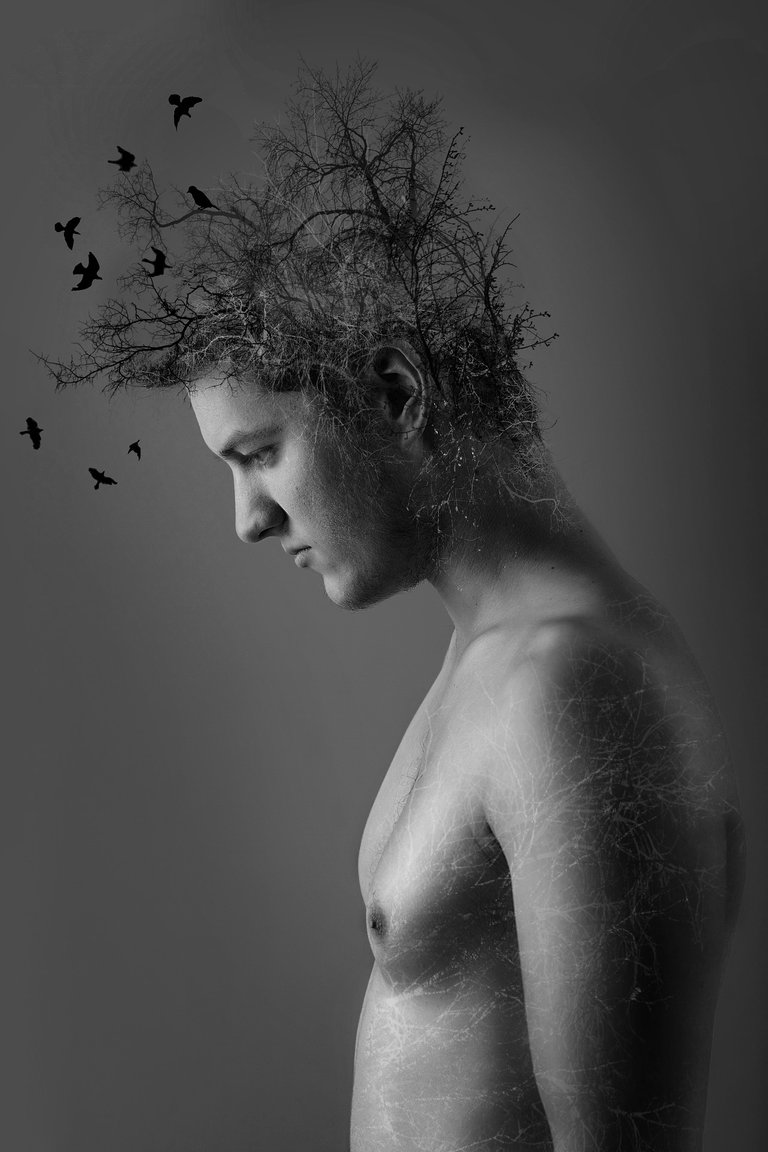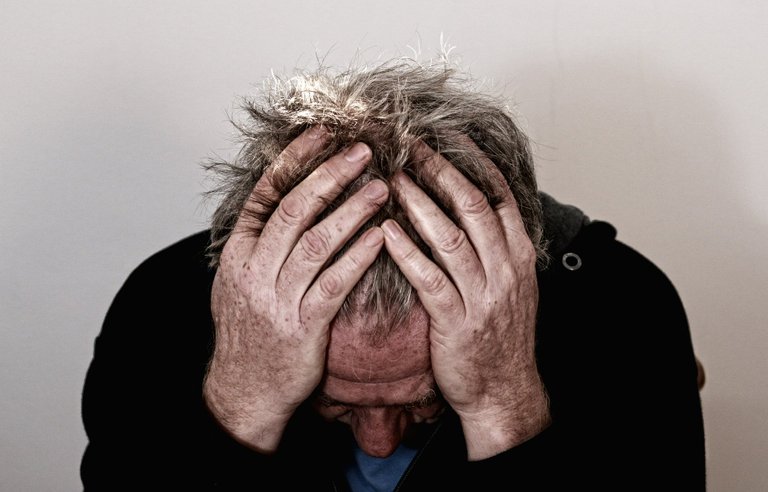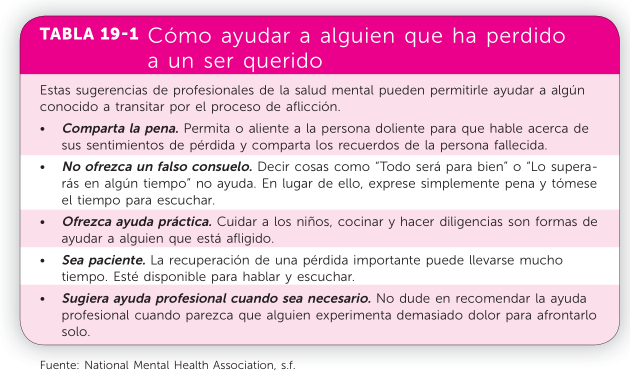Actualmente enfrentamos uno de los periodos más difíciles en la historia de la humanidad, y no solo a nivel económico sino mayormente sanitario: la tasa de mortalidad ha aumentado abruptamente a consecuencia de la pandemia, y no solo se debe a muertes causadas directamente por COVID-19, sino debido al estado de emergencia que afrontan los sistemas de salud a nivel mundial, donde cualquier otra enfermedad será igualmente difícil de tratar.
We are currently facing one of the most difficult periods in human history, not only economically but also in terms of health: the mortality rate has increased sharply as a result of the pandemic, and is not only due to deaths caused directly by COVID-19, but due to the state of emergency facing health systems worldwide, where any other disease will be equally difficult to treat.

Imagen de Szilárd Szabó en Pixabay
Enfrentar la muerte de familiares cercanos es un proceso duro, y tratar de ser apoyo para personas cercanas y queridas que lo enfrentan también, es confuso y nos preguntamos constantemente “¿qué puedo hacer yo para ayudar?”.
Facing the death of close family members is a hard process, and trying to be supportive of close and loving people who are facing it too, is confusing and we constantly ask ourselves "what can I do to help?".

Imagen de Sasin Tipchai en Pixabay
Por ello, he decidido traer a esta plataforma una bibliografía de Papalia y Feldman en su libro de “Desarrollo Humano”, en dónde podremos entender mejor el concepto de duelo, y traer a coalición la mejor manera de ser apoyo para otros en este proceso.
Therefore, I have decided to bring to this platform a bibliography of Papalia and Feldman in their book "Human Development", where we can better understand the concept of grief, and bring to coalition the best way to be support for others in this process.
En primer lugar el duelo se refiere a “la pérdida de alguien a quien la persona se siente cercana y el proceso de ajustarse a ella” Papalia y Feldman, 2012. Por lo general, esto tiene relación con cual es nuestro rol, luego de la muerte de este ser querido (por ejemplo: pasar a ser madre y padre al mismo tiempo). Ahora bien, duelo no significa lo mismo que aflicción, siendo esta la “respuesta emocional experimentada en las primeras fases del duelo” Papalia y Feldman, 2012, siendo esta experiencia sumamente personal, que, a diferencia de años anteriores, está más “normalizado” y suele verse común y útil (no se cuestiona el dolor de una persona ante la pérdida física de alguien).
First, grief refers to "the loss of someone you feel close to and the process of adjusting to it" Papalia and Feldman, 2012. This usually has to do with what our role is after the death of this loved one (e.g., becoming a mother and father at the same time). However, grief does not mean the same thing as mourning, this being the "emotional response experienced in the early stages of grief" Papalia and Feldman, 2012, this being a highly personal experience, which, unlike previous years, is more "normalized" and often seen as common and useful (one does not question a person's grief at the physical loss of someone.

Imagen de Deflyne Coppens en Pixabay
Además, existe un modelo clásico de trabajo de aflicción, en el cual existe una “resolución de los problemas psicológicos relacionados con la aflicción” Papalia y Feldman, 2012 , es decir, con la pena (este modelo o patrón puede variar).
In addition, there is a classic model of grief work, in which there is a "resolution of psychological problems related to grief" Papalia and Feldman, 2012 , that is, with grief (this model or pattern may vary).
Choque e incredulidad. Inmediatamente después de una muerte, los supervivientes suelen sentirse perdidos y confundidos. A medida que toman conciencia de la pérdida, el aturdimiento inicial cede el paso a sentimientos abrumadores de tristeza y llanto frecuente . Esta primera etapa puede durar varias semanas, sobre todo después de una muerte repentina o inesperada Papalia y Feldman, 2012.
**Preocupación por la memoria de la persona muerta **. En la segunda etapa, que puede durar de seis meses a dos años o algo así, el superviviente trata de aceptar la muerte , pero no puede hacerlo todavía. Una viuda quizá reviva la muerte de su marido y toda su relación. De vez en cuando puede verse embargada por los sentimientos de que su difunto esposo está presente. Esas experiencias disminuyen con el tiempo, pero pueden repetirse —tal vez durante años— en ocasiones como el aniversario de bodas o de la muerte Papalia y Feldman, 2012.
** Resolución**. La última etapa habrá llegado cuando la persona doliente renueva el interés en las actividades cotidianas. Los recuerdos de la persona que falleció traen consigo sentimientos de cariño mezclados con tristeza en lugar del dolor agudo y la añoranza Papalia y Feldman, 2012.
-Shock and disbelief Immediately after a death, survivors often feel lost and confused. As they become aware of the loss, the initial shock gives way to overwhelming feelings of sadness and frequent crying. This first stage can last several weeks, especially after a sudden or unexpected death.
-Concern for the memory of the dead person . In the second stage, which can last from six months to two years or so, the survivor tries to accept the death but cannot yet do so. A widow may relive her husband's death and her entire relationship. From time to time she may be overwhelmed by feelings that her late husband is present. These experiences diminish over time, but can be repeated - perhaps for years - on occasions such as the wedding or death anniversary of Papalia and Feldman, 2012.
-Resolution. The final stage will have come when the grieving person renews interest in daily activities. Memories of the person who died bring with them feelings of love mixed with sadness instead of the sharp pain and longing Papalia & Feldman, 2012.

Imagen de Gerd Altmann en Pixabay
No podemos olvidar también, que existen las pérdidas ambiguas, las cuales, en estos momentos son cada vez más frecuentes, y son más difíciles de experimentar siendo muy dolorosas y su aceptación es más lenta, tratándose de aquellas pérdidas que se generan espontáneamente, o pérdidas que no tienen algún sentido físico (desaparecidos, personas en el exterior, etc).
We cannot forget also, that there are ambiguous losses, which, in these moments are more and more frequent, and are more difficult to experience being very painful and its acceptance is slower, being those losses that are generated spontaneously, or losses that do not have some physical sense (missing persons, people in the exterior, etc).
Ya una vez, entendiendo que significa, y cuáles son sus etapas comunes, podemos proceder a la pregunta anteriormente planteada “¿Y cómo podemos ayudar?”, para ello, adjunto este cuadro informativo, para conseguir maneras (cada quien a su modo) de ser “útil” o actuar de la mejor manera cuando un ser querido o amigo pasa por un duelo.
Once again, understanding what it means and what its common stages are, we can proceed to the above question "And how can we help", for which I attach this informative chart, to find ways (each in its own way) to be "useful" or to act in the best way when a loved one or friend goes through a grief.

Espero que esta información le sea útil, y les permita entender más al otro y a uno mismo cuando estas situaciones desfavorables suceden ¡Nos vemos en un próximo post! :)
I hope this information is useful to you, and allows you to understand more about each other and yourself when these unfavorable situations happen. :)
Referencias bibliográficas:
Papalia, D. E., Feldman, R.D., Martorell, G., Berber Morán, E., & Vázquez Herrera, M. (2012). Desarrollo humano (12ª ed.). México, D. F.: McGRaw-Hill Interamericana.
Congratulations @soycristi! You have completed the following achievement on the Hive blockchain and have been rewarded with new badge(s) :
You can view your badges on your board and compare yourself to others in the Ranking
If you no longer want to receive notifications, reply to this comment with the word
STOPDo not miss the last post from @hivebuzz:
Recientemente perdí a mi padre, y es un proceso duro el hecho de afrontarlo por mil razones. Me ayudó mucho mi fe en Dios, pero la compañía y la colaboración sincera de muchas personas también fue importante. Gracias por tu publicación. Saludos.
Lo siento mucho, imagino por lo que puedes estar pasando, es un proceso largo. Muchísimas gracias por compartir esto. Saludos :)
😞